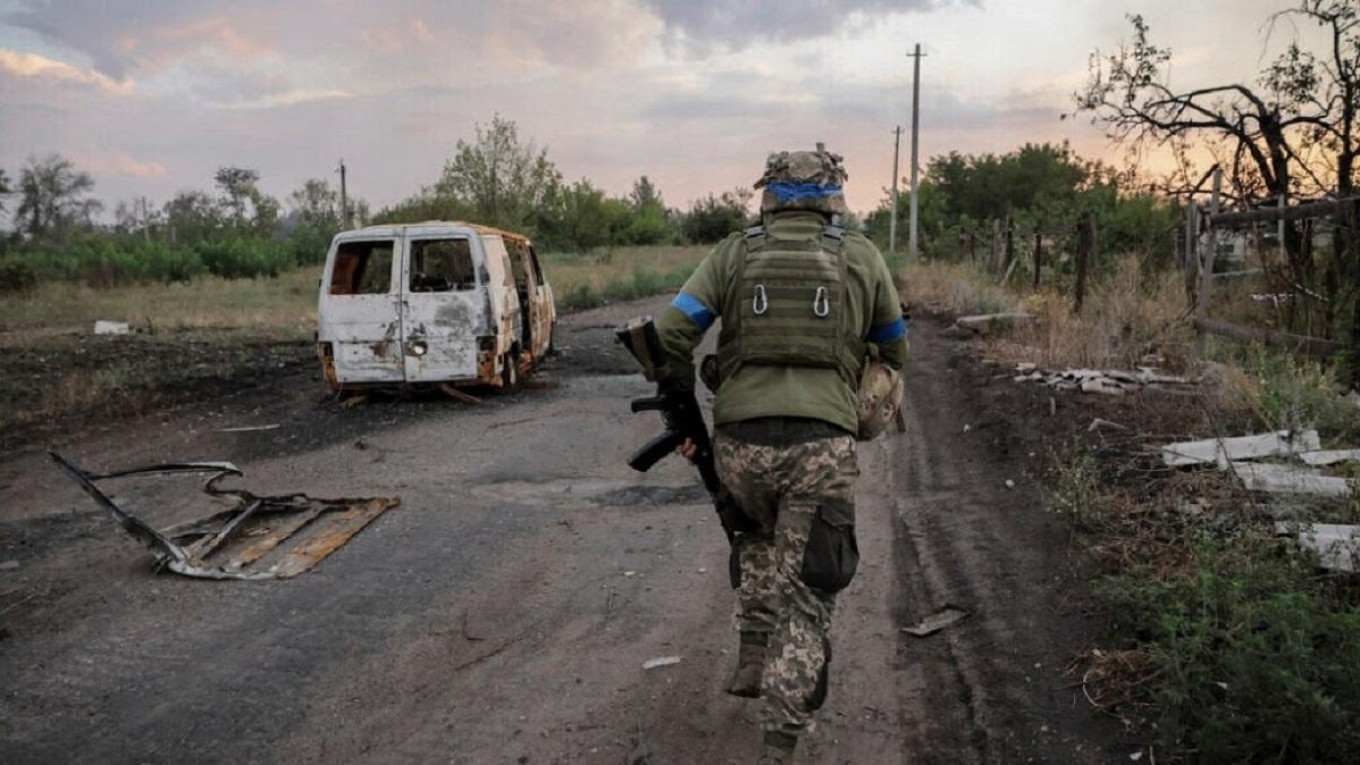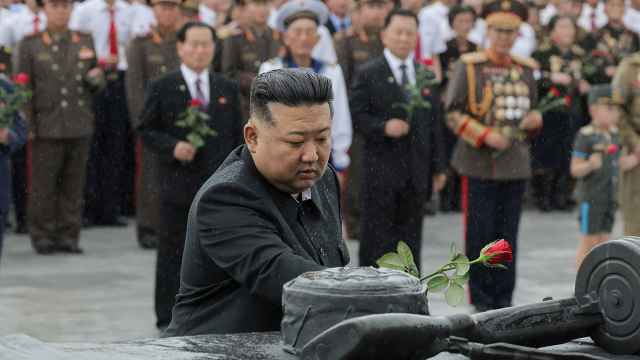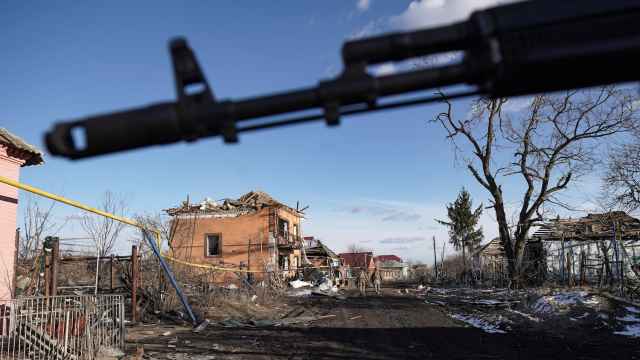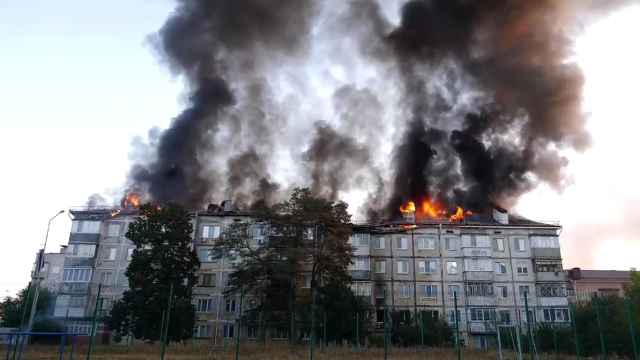In democratic countries, autumn is the start of the political season. In authoritarian countries like Russia, it is a time when society finally starts to feel the effects of all the negative decisions that the government made during the summer, as well as a time in which people pay even less attention to what is going on across the country.
Ukraine’s Kursk offensive has accelerated these processes, revealed them as clearly as possible and set the context in which a number of trends will start to appear with even greater force and speed.
Confusion and strange reactions
The most important trend is the fading of Russian civic consciousness to complete absence — and, more importantly, the absence of even a regional identity in regions where ethnic Russians comprise the majority. In parts of the country where other nationalities make up the majority or a significant part of the population (primarily the republics of the North Caucasus), on the contrary, regional identity is very strong.
Russians’ reaction to the Kursk region offensive closely resembles how they reacted to Yevgeny Prigozhin's mutiny a year ago. It is one of complete apathy and shifting the responsibility for solving the problem to the federal authorities and law enforcement.
Ironically, this is the public reaction that the Kremlin itself has sought to achieve with all of its actions over the past 25 years and especially the past three years. Its efforts have resulted in the average Russian being completely deprived of civic subjectivity, with any manifestation of it immediately punishable by criminal sentences or being forced out of the country under threat of imprisonment.
Any horizontal links, much less institutionalized ones (NGOs, associations, etc.) are under strict control. If an organization deviates from the ideological norm, the mildest reaction established by the regime is to declare it a “foreign agent” — with all the numerous, constantly expanding restrictions that accompany this status.
So the Kursk operation demonstrated that civic identity is a formality for Russians and that it does not grow stronger in times of crisis. Not even Kursk region residents lined up at military enlistment offices after Ukraine launched its attack on Aug. 6. It would thus be strange to expect that men from the Zabaikalsky region in Siberia, for example, would line up to defend Kursk.
Moreover, the Kremlin has once again demonstrated its inability to respond to a serious crisis quickly. Three weeks have already passed since the Kursk incursion began. The territory occupied by Ukrainian forces is expanding, but the Russian army is carrying out the same task: fulfilling the Kremlin's desire to seize more territory in the Donbas. Other people's lands are de facto more important than the safety and suffering of their own population: combat-ready Russian troops are concentrated on the Donetsk front, and the Kremlin is demonstratively not going to use them to drive Ukrainian forces out of Russia.
If we translate this into the Russian propaganda discourse, then the abstract “Russians of Donbas” are more important to Putin than the very real Russians of the Kursk region.
You can also see Putin's indifference to his citizens and, at the same time, his irresistible urge to meddle in other people's affairs by looking at what he’s done since the start of the Kursk operation. He traveled to Azerbaijan to see Ilham Aliyev, toured the North Caucasus, tearfully praised the Chechens (“If you participate, you have already won” would be a great slogan for the TikTok warriors) and received Palestinian President Mahmoud Abbas. Putin's untimely visit to Beslan offered the only indirect reaction to the fact that the Kursk region is increasingly under Ukrainian control: though the anniversary of the terrible terrorist attack was still three weeks away, the Kremlin decided to link those tragic events to the “counter-terrorism regime” in the Kursk region.
Of course, one can use political technologists’ argument that Putin adheres to the principle that his face should be associated only with good news. But this argument is shattered by the abandonment and bitterness felt by tens of thousands of Kursk residents — something that makes the residents of Russia’s other border regions think long and hard.
100,000 inexplicable Russians
One of the crises that Russian society is already facing — and this crisis will flare up again in the fall! — is the creation of between 100,000 and 200,000 internally displaced people. In the Russian media, they are ignorantly called “refugees.”
We saw the same confusion with terminology in Ukraine at the very beginning of the Russo-Ukrainian war in 2014. One could argue, based on the Ukrainian experience: “It’s okay, you will figure out how to correctly refer to them, there will be enough time for that.” In the short term, displaced Russians will not be able to return to their homes, both because of the fighting and because of the destruction — not just by Ukrainian forces — that the war is inflicting on their property. The Kremlin is already feeling social pressure, albeit moderate, and obviously does not know what to do with people who have had to leave their homes and livelihoods. The surprisingly ill-conceived proposal to resettle Kursk evacuees in the occupied part of Ukraine’s Zaporizhzhia region confirms this further.
The countdown for the plateau of stability for Putin's regime started from the moment of Prigozhin’s plane crash and the failed Ukrainian counteroffensive of summer 2023.
The calculation was to control the overall pace of combat operations: Russia’s army was pressing and suffering losses, but advancing in the Donbas. Pure calculation and nothing more: captured territories are exchanged for the lives of soldiers, which, in turn, are bought with petrodollars — in the form of payments for signing a contract. In the Kremlin's scheme, Ukraine was supposed to defend itself and slowly cede territory.
An essential condition for maintaining this plateau politically was the absence of a new mobilization wave and major operational failures by the Russian military.
The events in Kursk have shown everyone — the Kremlin most of all — that its chosen strategy of replenishing the Russian army through predominantly financial incentives does not allow it to build up sufficient strategic reserves or a manpower advantage over the Ukrainian military. Multilevel recruiting — through payments, pardoning criminals, forcing conscripts to sign contracts, granting Russian citizenship to foreign citizens — is only enough to replenish heavy daily losses (“meat assaults”) and maintain the army's current numbers.
The current hybrid mobilization efforts will not be enough. They have already not been enough for the new front in the Kursk region: it must be closed, either at the expense of other sections of the front or by switching to defensive actions and handing the initiative to the Ukrainian Armed Forces, or by forced mobilization, like we saw in the fall of 2022.
Added to this is the politically precarious role of conscript soldiers in combat operations. Under Russian law, they can be sent into combat after four months, but the inevitable losses among them will lead to serious negative consequences even among loyal Russians. Conscripts are predominantly 18-20-year-olds, and their deaths will have a strong resonance even in a subjectless Russian society. At the same time, they will confirm that the Russian army has degraded to the point where it cannot fight a full-fledged war with professional soldiers.
Once again, combined with operational failure, indifference to the hardships of people living in the border region and a new wave of mass mobilization looming on the horizon, this is yet more evidence that Putin does not keep his word; he has repeatedly promised not to involve conscripts in combat operations.
With the onset of fall, we will witness not just the end of the plateau of stability of Putin's regime, but even more fundamental processes. It will be the beginning of the erosion of his image in the public consciousness and the desacralization of his power.
A new reality
In the system Putin has built, where he is presented as the alpha and omega, this erosion poses the greatest danger to domestic stability. Most importantly, the discontent eating away at this carefully constructed image of the “father of the nation” will crystallize inside Russia — and not just among the active part of society. Though they will lack a political or ideological basis, there will be protests. No “beautiful Russia of the future” for you!
Rather, they will be movements of relatives of conscripts, internally displaced persons and their relatives, residents of border regions who feel the kinetic consequences of the war and Russians who would be targeted in a second mass mobilization. In other words, we could be talking about millions of Russians. We do not even need to mention the impending economic and financial risks here; the reasons already cited, which directly affect Russians’ everyday lives, are sufficient.
Their apolitical nature makes them all the more serious and dangerous for the Kremlin because they will engage very broad segments of society. The first manifestations may be sporadic graffiti, musical works or other forms of audiovisual art, jokes and changes in everyday discourse related to the perception of Putin and his ability to lead the country and move it forward.
It is not for nothing that the Kremlin is currently paying so much attention to testing all sorts of blocking of social networks and messengers. The main reason for this is not only the desire to shield society from the “corrosive influence of the West” and the Russian opposition but also to rein in unethical domestic Russian media. Unable to prevent the crystallization of discontent, the Kremlin will try to stop their spread. It will try to do what it did in local social media communities in the Kursk region after Ukraine started its offensive — erase all negative comments and warn of liability for new posts.
One way or another, this will become a new reality that has every chance of multiplying: from the now-famous “Sudzha Native” Telegram channel to all of Russia.
A Message from The Moscow Times:
Dear readers,
We are facing unprecedented challenges. Russia's Prosecutor General's Office has designated The Moscow Times as an "undesirable" organization, criminalizing our work and putting our staff at risk of prosecution. This follows our earlier unjust labeling as a "foreign agent."
These actions are direct attempts to silence independent journalism in Russia. The authorities claim our work "discredits the decisions of the Russian leadership." We see things differently: we strive to provide accurate, unbiased reporting on Russia.
We, the journalists of The Moscow Times, refuse to be silenced. But to continue our work, we need your help.
Your support, no matter how small, makes a world of difference. If you can, please support us monthly starting from just $2. It's quick to set up, and every contribution makes a significant impact.
By supporting The Moscow Times, you're defending open, independent journalism in the face of repression. Thank you for standing with us.
Remind me later.








